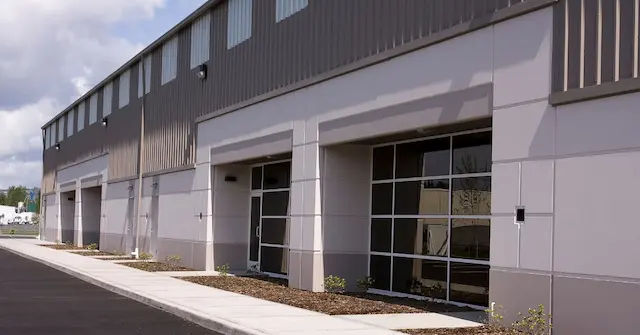Commercial Property Singapore

Whether you’re an investor looking to purchase, a seller aiming to make a sale, or a client seeking to navigate the bustling Singapore property market, this guide is your trusted companion.
With access to the most up-to-date information about residential and commercial developments, along with a broad range of services tailored to your needs, we ensure our clients are well-informed and confident in their decisions.
The best types of commercial properties in Singapore are office spaces, retail shops, industrial properties, shophouses, and mixed-use buildings.
Feel free to browse through this extensive guide and keep it handy for future reference. We update it regularly to ensure you always have the most accurate and current information at your fingertips. Trust us to take you through the complex world of Singapore’s commercial real estate landscape.
Quick Summary
- Best types of commercial properties in Singapore are office spaces, retail shops, industrial properties, shophouses, and mixed-use buildings.
- When buying commercial property in Singapore include understanding the property’s location, market trends, financing options, potential for return on investment, and the legal requirements and regulations surrounding commercial real estate transactions.
- The commercial property market in Singapore is highly competitive and dynamic, offering a multitude of opportunities for investors with an understanding of market trends and a strategic approach.
What is Commercial Property?
Commercial property, often referred to as commercial real estate, pertains to any property that is used for business activities. These properties typically include office buildings, shopping centers, warehouses, and industrial buildings. In the context of Singapore, commercial real estate is a booming sector, thanks to the city-state’s thriving economy and strategic geographical location. Investing in commercial real estate in Singapore offers potential for significant financial returns, given the high demand for business spaces in this global financial hub.
Key Considerations
- Location: The success of business operations often hinges on the location of your commercial real estate. In Singapore, prime areas like Orchard Road, Marina Bay, and Raffles Place tend to command higher prices but also yield better returns.
- Property Type: Understanding the different types of commercial properties in Singapore – such as office spaces, retail shops, or industrial buildings – and their respective market trends can help you make an informed decision.
- Legal Requirements and Restrictions: It’s crucial to comprehend the legal aspects of owning a commercial real estate in Singapore. This includes understanding property laws, zoning restrictions, and the legal rights of the property owner.
- Cost and Financing: Besides the cost of the property itself, consider other financial factors such as maintenance costs, property taxes, insurance, and potential renovation expenses. You also need to explore your financing options and understand the loan-to-value (LTV) ratio.
- Potential Yield and Return on Investment (ROI): The primary reason for investing in commercial real estate is to make a profit. Investigate the potential yield and ROI of the property, and consider whether this aligns with your financial goals.
- Market Conditions: Keep an eye on the market conditions in Singapore. Economic factors, demand and supply, and commercial real estate trends could all influence the profitability of your investment.
Things to Consider Before Buying a Commercial Property
1. Understand Your Business Needs

It’s essential to have a clear understanding of your business needs before you start searching for a commercial real estate. Consider factors like the size of the property, its layout, and location. Do you need a storefront for customer traffic? Or do you require a spacious area for storing inventory? Answering these questions will help you identify the type of property that best meets your needs.
2. Consider Future Growth

While it’s crucial to consider your current business needs, it’s also important to think about your future requirements. If your business is likely to expand in the coming years, you may want to invest in a larger property to accommodate this growth.
3. Research Market Trends

Keep an eye on the current and predicted future trends in the commercial real estate market. This will help you make an informed decision about when and where to invest.
4. Consult With Professionals

Given the complexities of the commercial real estate market, it can be beneficial to consult with professionals. This could include commercial real estate agents, financial advisors, and solicitors. They can provide you with expert advice, help you negotiate the best deal, and ensure you understand all the legal and financial implications of your purchase.
5. Due Diligence

Before finalizing your purchase, conduct a thorough inspection of the property. Check for any structural issues or necessary repairs, and ensure all the property’s legal paperwork is in order.
Types of Commercial Properties in Singapore
1. Office Spaces

These are the buildings or portions of a building where businesses conduct their operations. Office spaces can be further broken down into Grade A, B, or C, depending on their location, quality of the building, and facilities provided.
2. Retail Spaces

This category includes malls, shop houses, and standalone stores. These are properties that are predominantly used for retail trade, such as selling goods and services directly to consumers.
3. Industrial Properties

These are used for manufacturing, production, or warehousing. They can range from factories and warehouses to business parks and high-tech industrial spaces.
4. Shophouses

A unique feature of Singapore’s real estate landscape, shophouses are traditional buildings that serve both residential and commercial purposes. They often house retail outlets, restaurants, or offices on the lower floors and residential units on the upper floors.
5. Mixed-Use Buildings

As the name implies, these properties are used for both residential and commercial purposes. They can contain any combination of offices, retail spaces, residential units, and even hotel rooms.
How to Finance A Commercial Property

- Determine Your Budget: Before you apply for a commercial real estate loan, outline a clear budget. This should take into account your down payment, monthly installments, and other associated costs like insurance, taxes, and maintenance costs.
- Choose a Suitable Loan: commercial real estate loans in Singapore come in various forms, each with its own terms and conditions. You can choose from fixed-rate loans, floating-rate loans, or board-rate loans, depending on what best suits your financial situation and risk tolerance.
- Prepare Necessary Documents: When applying for a loan, prepare all necessary documents. These typically include your company’s financial statements, bank statements, credit history, and details about the property you plan to purchase.
- Shop Around for the Best Rates: Different banks offer different interest rates and terms on their loans. Take the time to compare and negotiate the best rates and terms to ensure you get the most favorable deal.
- Apply for the Loan: Once you’ve gathered all the needed documents and found the best loan option, it’s time to apply. The bank will then evaluate your application based on your creditworthiness and the viability of your proposed investment.
- Close the Deal: If your loan is approved, the next step is to close the deal with the seller of the property. This involves signing a contract, paying any necessary fees, and transferring the ownership of the property.
Commercial Property Singapore
The realm of commercial real estate in Singapore is a dynamic and ever-evolving marketplace. The way developments are engineered to meet the needs of businesses and consumers alike is a testament to the city-state’s adaptability and resilience. Commercial properties aren’t just workplaces; they are homes for businesses and the people who work in them.
Navigating this market involves understanding the landscape, engaging with sellers, and making informed decisions. By applying the considerations and steps outlined in this guide, prospective investors can confidently step onto the path of commercial real estate investment in Singapore.
Since you’ve made it to the end, why don’t you check out more of our blog posts down below:
- Ultimate HDB Grants Singapore Guide (2025)
- Best Property Developers in Singapore (2025)
- Best Sentosa Cove Houses in Singapore (2025)
- Ultimate Property Valuation Singapore Guide (2025)
Frequently Asked Questions
If you have any questions about Commercial Property Singapore, you can refer to the frequently asked questions (FAQ) below:
What are the best types of commercial properties in Singapore?
The best types of commercial properties in Singapore are office spaces, retail shops, industrial properties, shophouses, and mixed-use buildings.
Is commercial property a good investment in Singapore?
Firstly, commercial property in Singapore typically offers higher rental yields than residential property. This means that investors can potentially earn a higher return on their investment through rental income.
Can foreigners own commercial property in Singapore?
Singaporeans, Permanent Residents, and Foreigners are all allowed to purchase commercial real estate in Singapore without restrictions, unlike residential properties.
What is the minimum down payment for commercial property in Singapore?
In a situation where you are purchasing a commercial real estate for $1 million, the minimum down payment you will be required to fork out is $200,000 (in cash – remember, no CPF can be used for commercial properties), and the remaining $800,000 can be financed using a commercial real estate loan.
How much is commercial real estate tax in Singapore?
Non-residential properties such as commercial and industrial buildings and land are taxed at 10% of the Annual Value. Owner-occupier tax rates do not apply to non-residential properties even if you have bought the properties for your own use/occupation.
Where can I find commercial properties for sale in Singapore?
Commercial properties for sale in Singapore can be found through various online property listing platforms, real estate agencies, and sometimes through direct contact with property owners. Always make sure to conduct thorough research to ensure you’re getting the best deal.
What should I consider when looking for an office space in Singapore?
When searching for office space in Singapore, consider factors like the location’s accessibility, proximity to MRT stations and amenities, the condition of the building, rental or purchase prices, the terms of the lease or sale agreement, and whether the space meets your business needs in terms of size and layout.
How does the proximity to MRT stations impact the value of a commercial property in Singapore?
The value of a commercial property in Singapore can be significantly affected by its proximity to MRT stations. Properties near MRT stations are generally more expensive due to the convenience and accessibility they offer, which makes them more attractive to businesses and therefore more in demand.
Are there any restrictions for foreigners buying Singapore property?
For commercial properties in Singapore, there are no restrictions for foreign buyers. This contrasts with residential properties where there are certain limitations. Foreigners are allowed to buy commercial property in Singapore without any restrictions.
What is the market outlook for Singapore property in the coming years?
The market outlook for Singapore property, including commercial real estate, depends on a number of factors including economic conditions locally and globally, government policies, and supply and demand trends. As of now, it is recommended to stay updated with market trends and regularly consult with real estate experts for the most accurate forecasts.
Additional Useful Articles
If you are looking for other useful guides and articles about Ultimate Commercial Property Singapore Guide, check them out below:
- Ultimate Commercial Property Singapore Guide (2025) by FunEmpire
- Ultimate Commercial Property Singapore Guide (2025) by Hyperspace
- Ultimate Commercial Property Singapore Guide (2025) by TheFunSocial
- Ultimate Commercial Property Singapore Guide (2025) by BestInSingapore
- Ultimate Commercial Property Singapore Guide (2025) by MediaFirst


